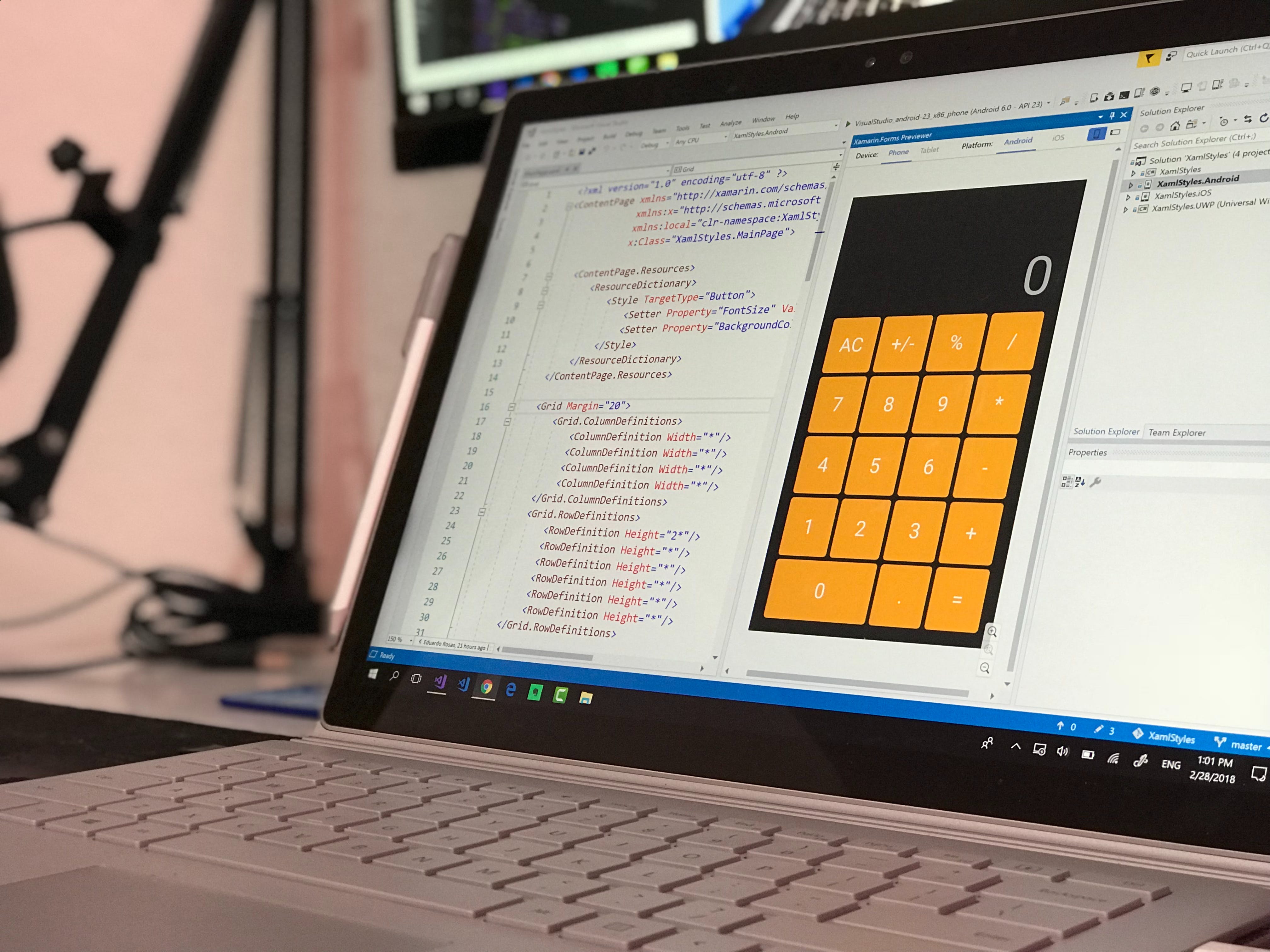At the core of the digital revolution, mobile app development stands as a cornerstone, essential for businesses aiming to thrive in the modern marketplace. Understanding the essentials of mobile app development involves comprehending the full spectrum of processes from ideation to launch, and continuous maintenance. It starts with identifying a market need, followed by meticulously planning out the app’s features, design, and user interface. Developers must then choose the right technology stack, considering the app’s requirements, scalability, and target audience’s platform preferences.
Ensuring a seamless user experience is paramount, which is why user testing and quality assurance are integral parts of the development process. After the app’s deployment, developers must monitor its performance and gather user feedback, which is crucial for iterative improvements. As technology advances at a breakneck pace, developers and businesses must stay abreast of the latest industry trends to keep their applications relevant and competitive.
For those looking to embark on this journey, Biz4Solutions offers expertise in crafting bespoke mobile applications that not only meet but exceed client expectations. Our dedicated team leverages cutting-edge technology to deliver software that stands tall in functionality and innovation.
The Evolution of Mobile App Platforms

The landscape of mobile app platforms has undergone a significant transformation since the inception of the first smartphone. Early mobile apps were often simple, with limited functionality, designed specifically for the few mobile operating systems that existed. Contrastingly, today’s platforms like iOS and Android have developed into mature, feature-rich environments that support millions of apps, catering to virtually every conceivable need and interest.
As these platforms evolved, so did the development frameworks and tools. Initially, apps were developed using native programming languages like Objective-C for iOS and Java for Android. However, the emergence of cross-platform development tools has enabled developers to write code once and deploy it across multiple platforms, saving time and resources. Technologies such as React Native, Flutter, and Xamarin have been game-changers, allowing for the creation of apps that provide near-native performance and user experience across different devices.
The evolution doesn’t stop there. Progressive Web Apps (PWAs) have blurred the lines between web and mobile apps, delivering app-like experiences directly from web browsers. With the continued advancement of mobile hardware and the increasing ubiquity of high-speed internet, the capabilities of mobile apps are expanding, making them more powerful and versatile than ever before.
User Experience Design in Modern App Development

In the realm of modern app development, user experience (UX) design has ascended as a cornerstone, dictating the success or failure of mobile applications. A seamless and intuitive UX design is pivotal, as it directly influences user engagement and retention rates. Developers and designers today prioritize a user-centric approach to app development, focusing on creating an enjoyable and efficient path for users to achieve their goals within the app.
Several elements are essential in crafting a superior UX design. These include a logical flow of content, responsive design that adapts to different screen sizes, fast loading times, and minimalistic interfaces that avoid clutter. Personalization has become a significant trend, allowing apps to tailor experiences based on individual user preferences, behaviors, and locations. Moreover, the incorporation of gestures and animations has enhanced interactivity, making the user journey more dynamic and engaging.
Accessibility also plays a crucial role in UX design. Ensuring that apps are usable by people with various disabilities not only broadens the user base but also demonstrates a commitment to inclusivity. Tools like voice navigation, screen readers, and adjustable text sizes are becoming standard features in inclusive app design. By prioritizing UX design, developers can create apps that not only meet the functional requirements but also deliver a pleasurable and accessible experience for all users.
Emerging Technologies Reshaping Mobile Apps

The landscape of mobile app development is continually evolving, with emerging technologies playing a pivotal role in shaping the future of mobile apps. These innovations are redefining the capabilities of apps and how users interact with them. Among the most influential technologies are Artificial Intelligence (AI) and Machine Learning (ML), which are making apps smarter and more adaptive. AI-driven personal assistants and chatbots have become commonplace, offering personalized recommendations and support to users.
Another transformative technology is Augmented Reality (AR) and Virtual Reality (VR). These technologies have transcended beyond gaming and entertainment, finding applications in education, healthcare, real estate, and retail. They provide immersive experiences that can enhance user engagement and offer innovative ways to showcase products and services.
Blockchain technology is also emerging as a game-changer for mobile apps, particularly in terms of enhancing security and enabling transparent transactions. With the rise of cryptocurrency and smart contracts, mobile apps are increasingly incorporating blockchain to benefit from its decentralized and tamper-proof nature.
The Internet of Things (IoT) connectivity is another trend propelling mobile apps to new heights. IoT-enabled apps can control smart devices, collect data from sensors, and enable automation in homes and industries. This interconnectivity opens up a myriad of possibilities for app functionality and user interaction.
As these technologies continue to mature, they will undoubtedly introduce new trends and challenges in mobile app development. Developers must stay abreast of these advancements to create cutting-edge apps that leverage the full potential of these emerging technologies.
The Impact of Artificial Intelligence on App Development

Artificial Intelligence (AI) is revolutionizing the field of mobile app development, offering unprecedented capabilities and efficiencies. AI’s impact is multifaceted, influencing everything from the initial design to the user experience and post-launch services. One of the most significant contributions of AI is personalization. By analyzing user behavior and preferences, AI enables apps to deliver tailored content and suggestions, thereby improving user engagement and satisfaction.
Machine Learning algorithms are at the heart of AI’s effectiveness in app development. They allow apps to learn from user interactions, making them more intuitive over time. For instance, predictive text and recommendations become more accurate as the app adapts to the individual user’s style and needs.
Customer service has also been transformed through AI, with chatbots providing instant, 24/7 assistance to users. These bots are becoming increasingly sophisticated, capable of handling complex queries and providing human-like interactions.
AI is also enhancing app security, with biometric authentication methods like face recognition and fingerprint scanning becoming more reliable and widespread. This not only improves security but also adds a layer of convenience for users.
Even the development process itself is benefiting from AI, with automated testing and bug detection improving app quality and reducing time-to-market. Developers can leverage AI tools to analyze code, predict potential issues, and optimize performance.
In conclusion, AI is not just a trend but a fundamental shift in how mobile apps are developed and utilized. Its impact is already being felt across all genres of apps, from gaming to finance to health, and its influence is only set to grow as technology continues to advance.
Adapting to Changing Consumer Behaviors in Apps
As consumer behaviors evolve, mobile app developers must adapt to stay relevant and competitive. The rise of on-demand services and the expectation for instant gratification have led to a surge in apps that cater to convenience and speed. Streamlined checkout processes, one-click ordering, and real-time tracking are just a few of the features that consumers now expect as standard.
Moreover, the increasing concern for privacy and data security has prompted app developers to prioritize these aspects. Transparent data usage policies and the incorporation of advanced security protocols are essential to maintain consumer trust.
Another shift in consumer behavior is the demand for seamless multi-platform experiences. Users frequently switch between devices, expecting their apps to provide a consistent experience regardless of the platform. Developers must ensure that their apps are optimized for a variety of devices and operating systems.
Social features are also becoming increasingly popular, as users look for more interactive and connected experiences within apps. Integrating social media functionalities, enabling in-app community building, and providing tools for user-generated content can significantly enhance user engagement.
To stay ahead of these ever-changing consumer trends, partnering with a technology solutions provider like Biz4Solutions can provide the expertise and innovation required to deliver cutting-edge apps that resonate with modern users. Reach out to us and discover how we can help elevate your mobile app to meet and exceed the latest consumer expectations.
In this dynamic landscape, agility and responsiveness to consumer needs are key. Developers must continuously monitor user feedback and behavior analytics to refine their apps accordingly. By doing so, they can ensure that their applications not only meet current demands but are also prepared for future shifts in consumer behavior.
